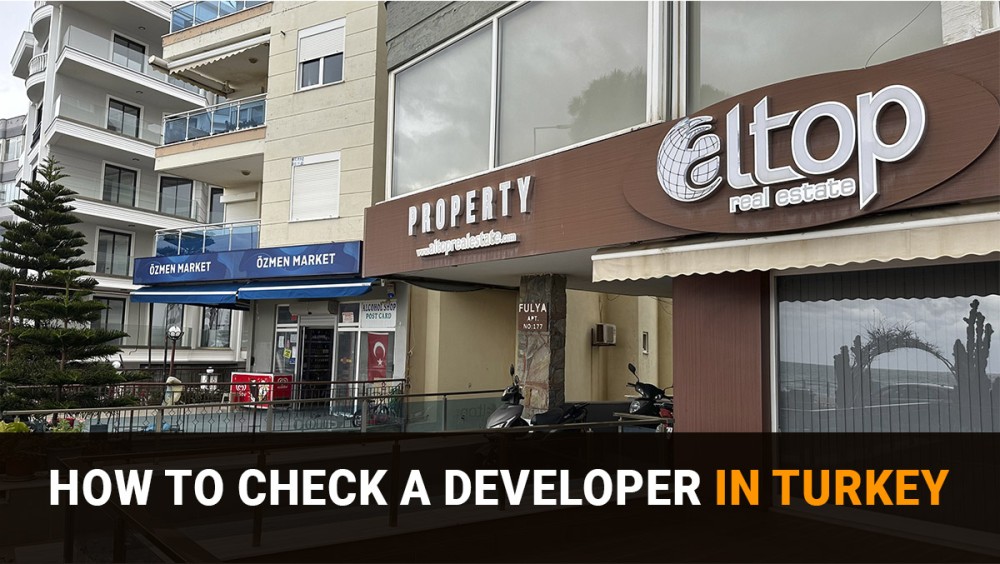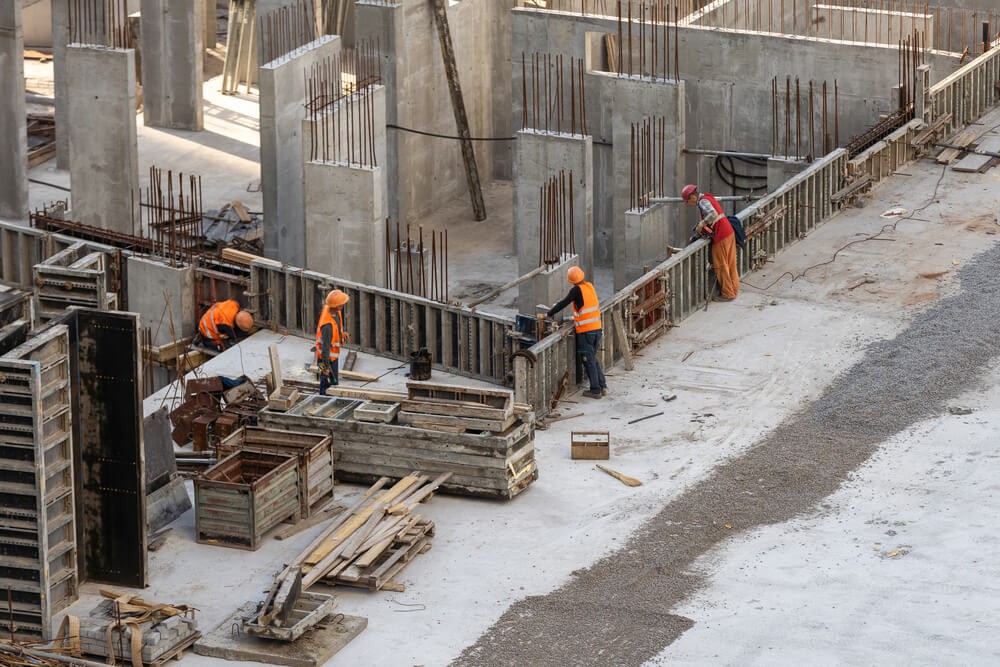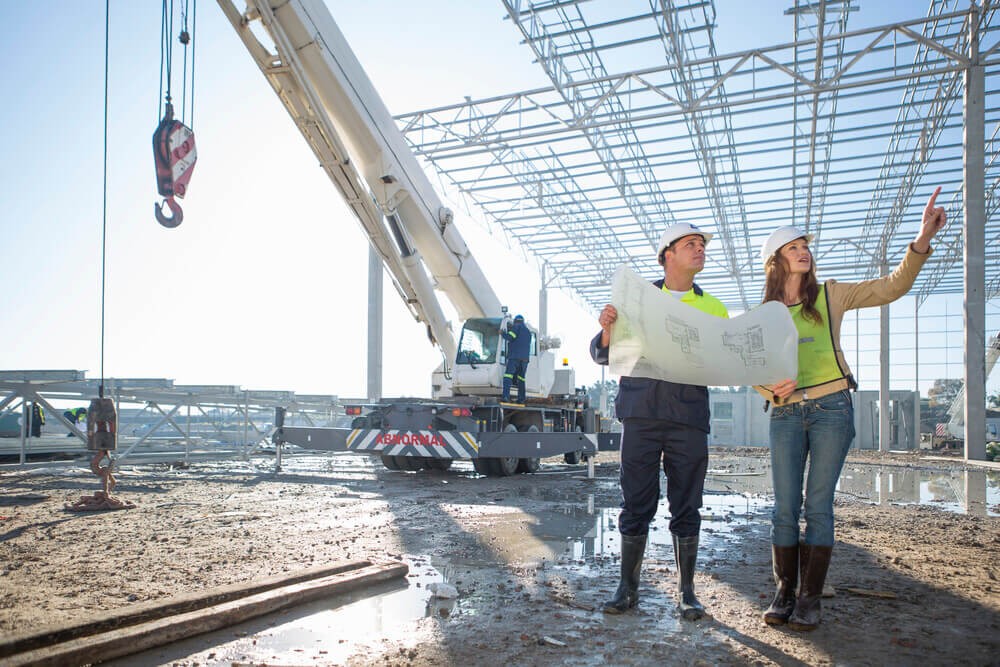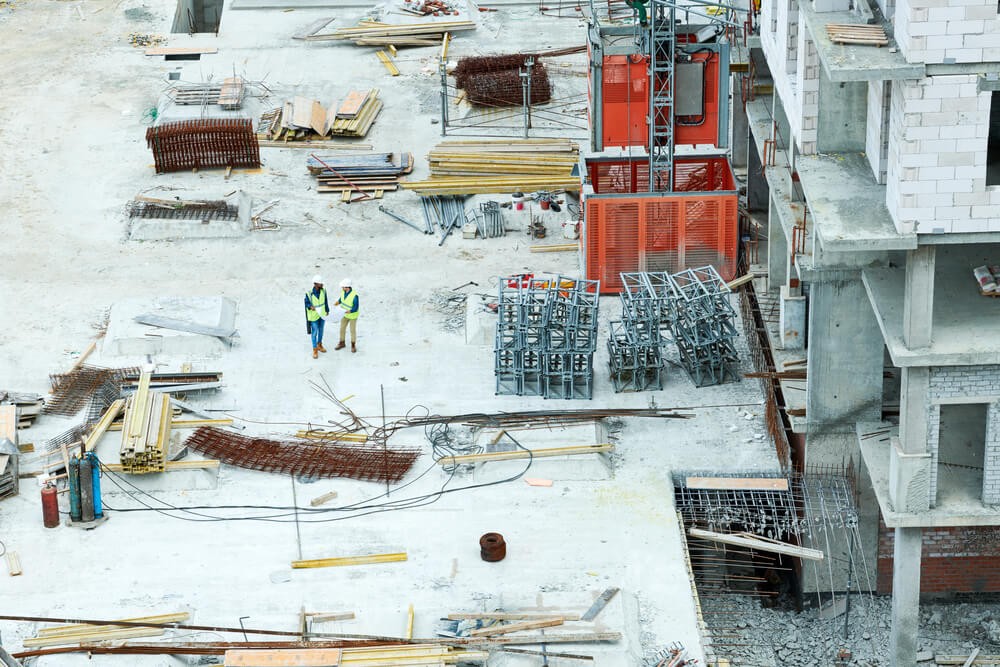How to Check a Developer in Turkey: 7 Red Flags


Türkiye remains one of the attractive destinations for real estate investment among foreign buyers. Favorable climate conditions, developed tourist infrastructure, relatively affordable prices and programs for obtaining a residence permit and citizenship are the main factors determining the choice of investors.
Buying apartments in Turkish new buildings has many advantages: modern construction technologies, high-quality turnkey finishing, developed infrastructure of residential complexes and potential for price growth. However, as in any market, there are certain risks associated with the choice of a developer.
In this article, we will share information on how to check a developer in Turkey - seven key red flags that will help you identify a potentially problematic company and make a safe purchase.
Contents of the article:
- How developers work in Turkey
- Red Flag #1: Bad Developer Reputation
- Red Flag #2: Unprofessional Site with Incomplete Information
- Red Flag #3: No Documents or Refusal to Provide Them When Requested
- Red Flag #4: Minimal Staffing, Unprofessional Service
- Red Flag #5: Work Stoppages, Slow Construction
- Red Flag #6: Poor quality finishes, non-functional infrastructure
- Red Flag #7: Vague Terms, No Guarantees in the Contract
How developers work in Turkey
Turkish developers, as in any other country, are construction companies that have an official license and state permission to build real estate for subsequent sale to buyers. Legislation strictly regulates the activities of developers, requiring compliance with international norms and quality standards.
The main feature of Turkish construction is that developers deliver apartments with full finishing. The buyer receives housing that is completely ready for living with high-quality repairs, installed plumbing, built-in kitchen furniture, floor coverings and suspended ceilings. Metal entrance doors, double-glazed windows and all utilities are also included in the basic package.
The average construction period for a multi-apartment residential complex is one to two years. Buyers who purchase properties at the excavation stage or the initial stage of construction receive significant discounts and the opportunity to choose finishing materials. However, this is where the main risks associated with unscrupulous developers lie.
Understanding how to check a developer when buying an apartment will help you better navigate the market and identify potential problems.
Red Flag #1: Bad Developer Reputation
The developer's reputation is a fundamental indicator of the reliability and quality of its work. Unlike advertising promises, reputation cannot be bought or fabricated - it is formed over the years and measured by the number of satisfied clients.
Start your developer check by studying the history of their activities. Reliable developers have been working in the Turkish real estate market for at least several years and have at least two or three fully completed residential complexes in their portfolio.
Actively use the Internet to gather information. Study reviews on independent sites, watch video reviews on YouTube, find mentions of the company on social networks. Pay special attention to negative reviews - they can reveal serious problems in the company's work.
If possible, talk to residents of already completed buildings in person. They provide the most valuable first-hand information: whether construction deadlines were met, what is the quality of the new apartments, whether any problems arose during operation.
Pay attention to social activity. Reliable developers actively maintain YouTube channels, regularly update pages on social networks, publish news about the progress of construction and their achievements. The absence of such activity or rare formal publications may indicate problems in the developer's work.
Warning signs:
The company has been operating on the market for less than 3 years.
There is no reliable information about previous projects on the Internet.
Numerous complaints from owners about delays in delivery or poor quality construction.
Lack of activity on social networks or rare updates.

Red Flag #2: Unprofessional Site with Incomplete Information
A high-quality official website serves as a business card of a serious developer. Experienced developers invest significant funds in creating a professional Internet presence, understanding its importance for attracting clients.
On the website of verified construction companies you will find a detailed history of the company indicating the year of foundation, information about the management and key employees, a portfolio of completed projects. There must be up-to-date information about the objects under construction with apartment layouts, technical specifications and prices.
Webcams or regular photo reports from construction sites are especially valuable. This demonstrates the openness of management and the desire to keep customers informed of what is happening.
Contact information includes exact office addresses with indication of city districts, telephone numbers, e-mail addresses and working hours. The presence of several offices in different city districts speaks of the scale of the company's activities.
The following points should be a cause for concern:
The site was created recently or looks unprofessional.
There is no information about the company's management.
There is no portfolio of completed projects.
Outdated information or "placeholders" instead of content.
Contacts are limited to phone number or email only.
Red Flag #3: No Documents or Refusal to Provide Them When Requested
Legal due diligence is one of the most important stages of choosing a developer. Any legitimate construction company must promptly provide a full package of documents confirming its right to conduct construction activities.
Required documents:
Certificate of state registration and charter.
License for construction activities.
Documents for the land plot.
Permission to build a specific object.
Design and estimate documentation.
TAPU for each apartment.
Preliminary TAPU for each apartment in the complex are documents that allow the developer to officially sell the property at the construction stage and serve as a guarantee that after the completion of the work, the buyer will be able to register full ownership rights.
Additionally, it is worth finding out the sources of construction financing. The most reliable option is when the developer uses his own funds. Credit financing is also acceptable, especially if the lender is a large Turkish bank. You should be wary of construction exclusively at the expense of equity holders.
You should definitely not cooperate if:
The developer refuses to provide documents or delays providing them.
The title and permit documents look dubious.
The site does not fall into the category of land on which multi-storey construction is permitted.

Red Flag #4: Minimal Staffing, Unprofessional Service
A personal visit to the developer's head office gives the opportunity to get an objective idea of the scale of the company's activities and the level of its professionalism. Serious developers are always open to meetings with potential buyers and are ready to demonstrate their achievements.
The location of the office says a lot about the status of the company. Reliable developers locate their offices in the business districts of the city, renting or purchasing spacious premises. The size of the office and its equipment are also important - a large developer should have at least ten to fifteen employees of various specializations.
The office staff should include sales managers, architects, lawyers, and specialists in working with foreign clients. The professionalism of the employees is demonstrated in their ability to tell in detail about all the company's projects, answer technical questions, and provide the necessary documentation.
The presence of a quality showroom allows you to evaluate the level of finishing and materials used. Here, customers can see samples of finishing materials, plumbing, and kitchen furniture. When buying an apartment at the construction stage, the buyer has the opportunity to choose color schemes and make changes to the layout.
A meeting with the company's management provides an opportunity to assess the seriousness of its intentions and its development plans.
Warning signs:
An office in a non-prestigious area or residential building.
Small space with 2-3 employees.
Lack of demonstration materials.
Inability of managers to answer basic questions.
Obsessive attempts to immediately sign the contract.
Red Flag #5: Work Stoppages, Slow Construction
Even the highest quality photographs and videos cannot convey the full picture of what is happening on the construction site. A personal visit allows you to objectively assess the actual progress of the work, its quality and compliance with the stated deadlines.
Plan your site visit during the peak of the workday, when the work should be in full swing. It is recommended to make several visits at intervals of two to three weeks to assess the construction dynamics.
If the construction of a new house is in full swing, you will see many workers, construction equipment, and supplies at the construction site. Pay attention to the quality of the building materials used - saving on them can result in serious problems in the future. The quality of concrete and reinforcement is especially important, since the strength of the entire building depends on them. Compliance with construction technologies is critical for the safety of future residents.
Assess the overall organization of work on the site. Chaos on the construction site, violations of safety rules, the use of homemade devices should raise alarm.
Take the opportunity to evaluate the area's infrastructure. See what is being built nearby, whether future buildings will block the view from your windows, whether there are schools, hospitals, shopping centers, public transport stops nearby.
Warning signs:
There has been no activity at the construction site for several visits in a row.
Cheap or low-quality materials are used.
Construction technologies are violated.
There are no safety measures.
Construction is progressing significantly slower than the stated deadlines.

Red Flag #6: Poor quality finishes, non-functional infrastructure
Studying the developer's completed projects gives the most objective idea of the quality of its work and approach to construction. For analysis, you should select residential complexes completed in the last two to three years, since they reflect the current level of the company.
Start your inspection by assessing the building's appearance. High-quality facades should not have cracks, peeling paint or plaster, or stains from leaks. Pay attention to the uniformity of the paint, the quality of the installation of windows and balcony railings, the condition of the roof and drainage systems.
The interior finish of common areas also says a lot about the developer's approach to quality. Inspect the lobbies, stairwells, corridors. High-quality materials, neat tiling, smooth walls and ceilings indicate high standards of work.
The condition of the local area reflects the developer's attitude to landscaping. High-quality paths, well-kept lawns and flower beds, functioning playgrounds and recreation areas indicate a comprehensive approach to creating a comfortable living environment.
The following should raise concern:
Visible defects in construction or finishing.
Complaints from residents about the quality of construction and infrastructure.
Numerous advertisements for the sale of apartments in the complex.
Red Flag #7: Vague Terms, No Guarantees in the Contract
The purchase and sale agreement is a key document that protects the rights of the buyer and defines the obligations of the parties. A thorough study of all its clauses will help to avoid unpleasant surprises and financial losses in the future.
The contract must clearly define the exact deadlines for the delivery of the object with specific dates, rather than vague wording. The developer's liability for violating deadlines must include specific fines and penalties, the amount of which motivates the developer to adhere to the work schedule.
The cost of the apartment is fixed in the contract without the possibility of unilateral revision of the price by the developer. Any changes in the cost must be made only by mutual agreement of the parties and formalized by additional agreements.
A detailed description of the property being purchased includes the exact area, floor, layout, types of finishing and materials. When purchasing at an early stage of construction, all agreed changes to the layout and finishing are recorded in the contract.
When applying for an installment plan, the contract must clearly state the payment schedule with reference to specific dates or stages of construction. All payments are made officially with the receipt of documents confirming the receipt of funds to the developer's account.
According to Turkish law, the contract must be drawn up in two languages - Turkish and the investor's native language, in three identical copies. Signing a contract with the participation of a foreign person is only possible in the presence of a sworn translator who bears legal responsibility for the accuracy of the translation.
Warning signs:
Vague wording of deadlines.
No liability of the developer for delays.
Possibility of unilateral price change.
Complex or unfavorable terms for termination of the contract.
No warranty obligations.
Pressure to "sign immediately."
Buying a new building in Alanya can be an excellent investment if you choose the right developer. Remember: time spent on a thorough check of the developer will help avoid problems and financial losses. Do not give in to pressure from sellers and do not make hasty decisions. And most importantly: cooperate with experienced, large real estate agencies - this is the key to a guaranteed win-win purchase.
Licensed real estate agency Altop Real Estate is ready to provide professional support at all stages of purchasing real estate in Turkey. We cooperate exclusively with proven and reliable Turkish developers with an impeccable reputation in the market. Our experts will help you find the most liquid options in new buildings and provide full legal support for the transaction.



